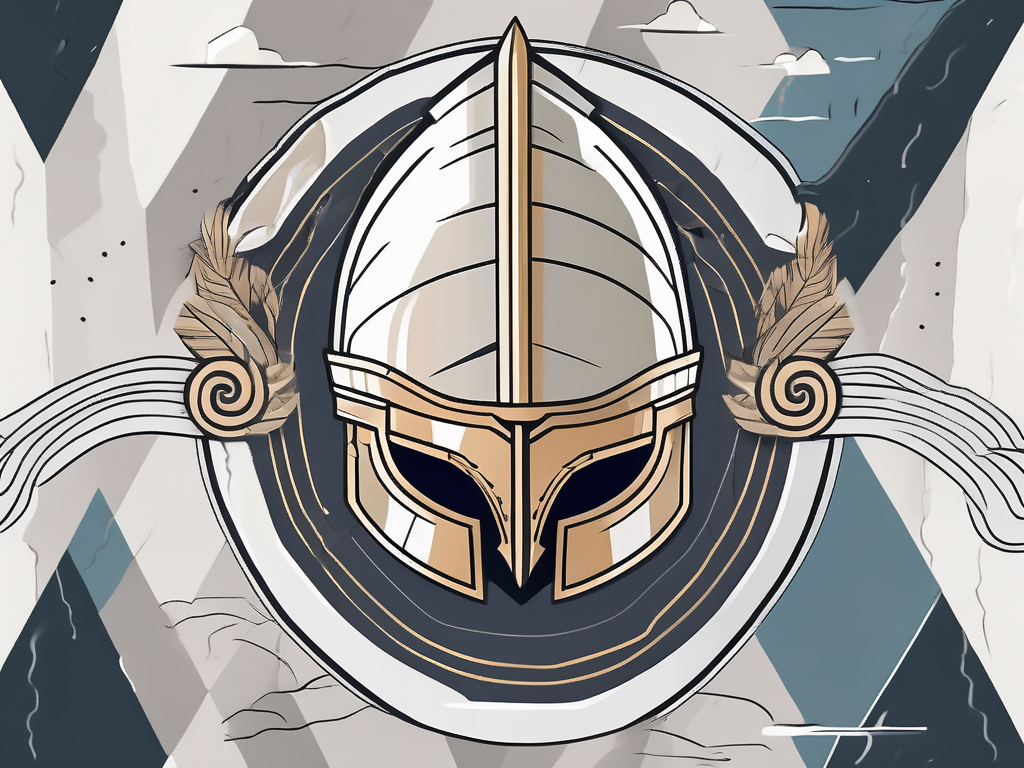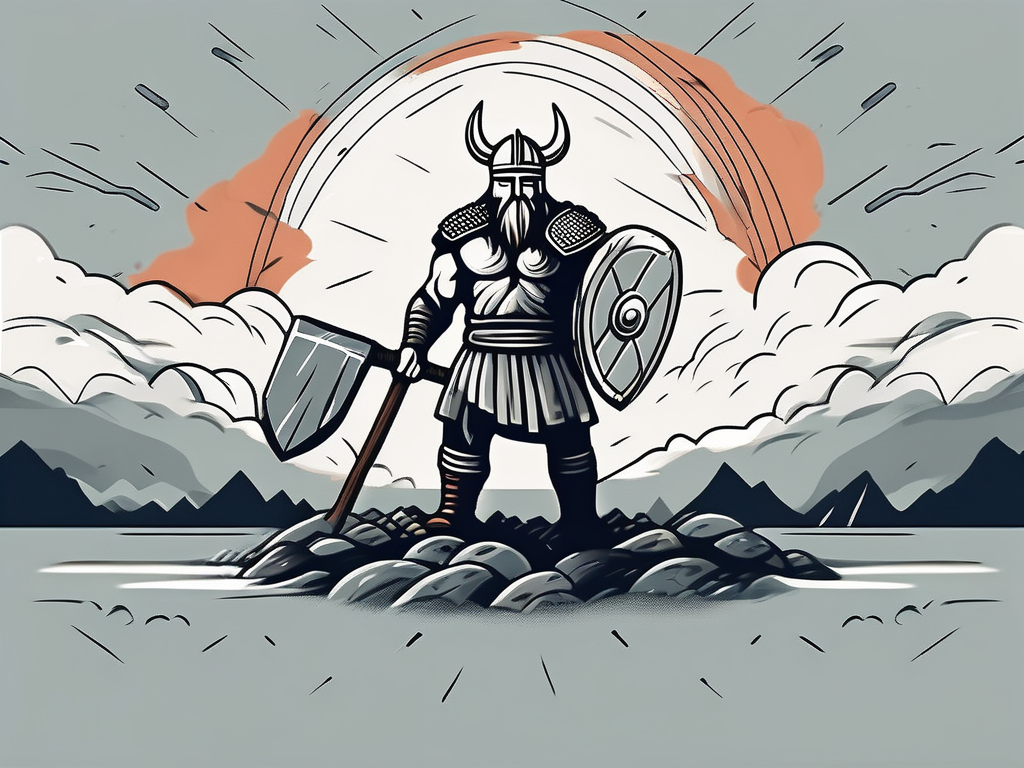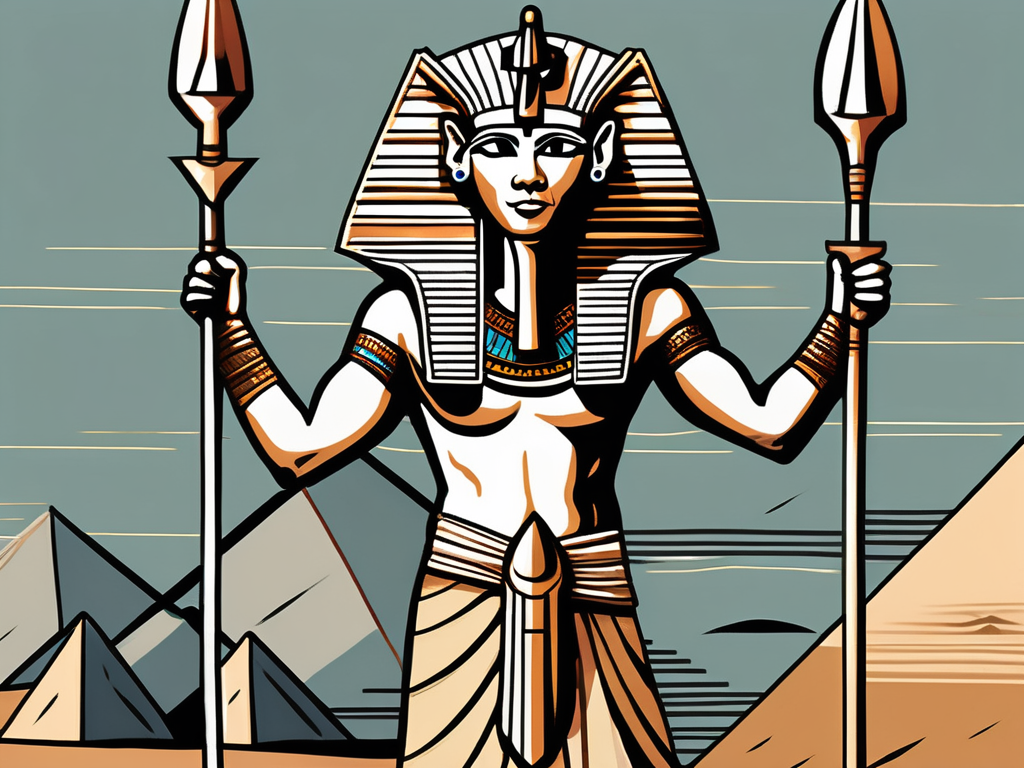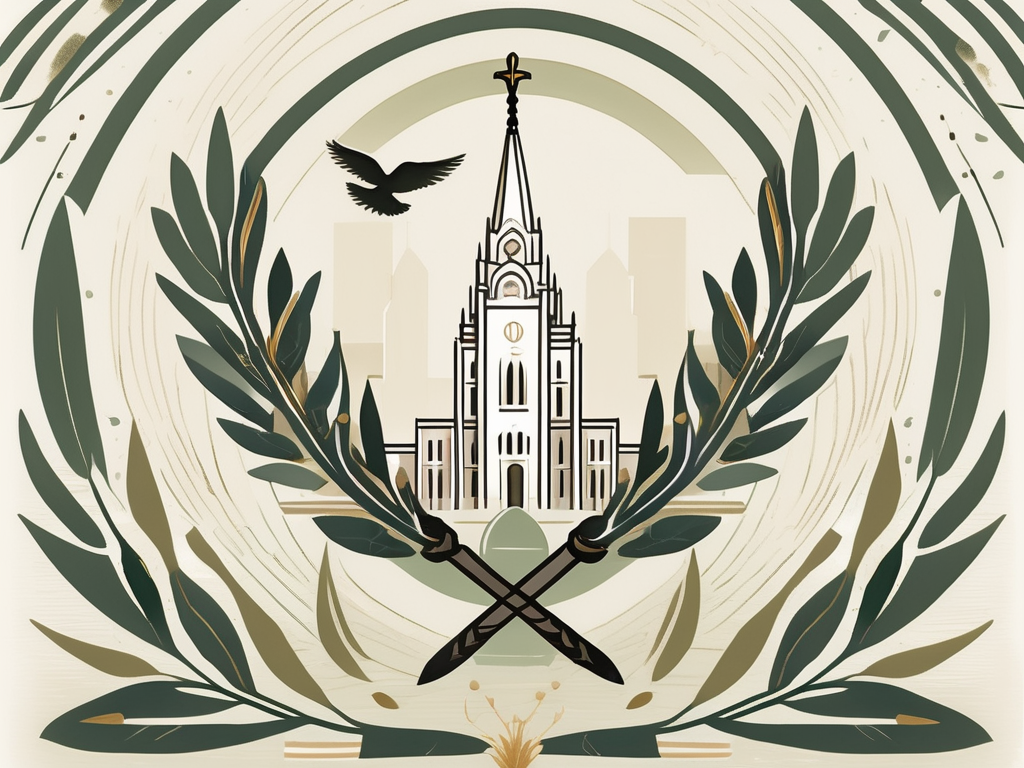Greek mythology is a captivating realm filled with gods and goddesses, heroes and monsters, and epic tales of love and war. Discovering the enchanting world of Greek gods takes us on a mesmerizing mythological journey that unravels countless stories and unveils the pivotal role mythology played in ancient Greek society. Let us dive deep into the fascinating cosmos of Greek gods and explore the significance they hold in both the past and present.
Understanding Greek Mythology
In order to fully appreciate the impact of Greek mythology, it is essential to comprehend its central purpose in ancient Greek society. Mythology played a vital role in shaping the beliefs, values, and customs of the Greeks. It provided explanations for the mysteries and phenomena of the world, offering a lens through which they could make sense of their existence.
The structure of Greek mythology is a layered tapestry of gods, goddesses, heroes, and creatures, each with their own unique attributes and stories. This intricate web of narratives weaves together to form a rich and vibrant tapestry that continues to capture the imaginations of people worldwide.
The Role of Mythology in Ancient Greek Society
Mythology was deeply ingrained in every aspect of ancient Greek society. It served as a means of education for both children and adults, teaching important moral lessons and ethical values. Through the stories of the gods, the Greeks learned about courage, wisdom, loyalty, and justice.
Furthermore, mythology provided a foundation for religious practices. Greek gods and goddesses were believed to control natural phenomena such as the weather, fertility, and agricultural abundance. Rituals and ceremonies were performed to appease these deities and ensure the well-being of the community.
Ancient Greek society also used mythology as a way to understand the world around them. For example, the story of Demeter and Persephone explained the changing seasons, with Persephone’s time in the underworld representing winter and her return to Earth symbolizing spring. These myths helped the Greeks make sense of the cycles of nature and the passage of time.
The Structure of Greek Mythology
The hierarchy of Greek gods starts with the Twelve Olympians – a group of powerful and influential deities. Zeus, the king of gods, oversees this divine assembly from Mount Olympus. Each god and goddess possesses distinctive roles and responsibilities, bestowing them with unrivaled influence over various domains.
Beneath the Olympians lie the Titans, a primordial race of ancient gods who predates the Olympians. These deities played significant roles in the creation and foundation of the world, acting as precursors to the more familiar figures in Greek mythology.
Additionally, Greek mythology is populated by a multitude of heroes and creatures. Heroes like Heracles, Achilles, and Odysseus undertake epic quests and face formidable challenges, showcasing the values of bravery, perseverance, and cunning. Creatures such as the Minotaur, Medusa, and the Hydra add an element of danger and mystique to the mythological landscape.
The Influence of Greek Mythology on Modern Culture
The allure of Greek mythology extends far beyond ancient times, enthralling contemporary society as well. Its impact can be observed in numerous facets of modern life, including literature, art, music, and popular culture.
Many novels and movies draw inspiration from the tales of Greek gods, incorporating their stories into captivating narratives that continue to captivate audiences worldwide. The themes and archetypes found within Greek mythology resonate with people of all ages, making it an enduring source of inspiration and fascination.
Moreover, Greek mythology has influenced various art forms. From ancient sculptures and pottery depicting mythological scenes to Renaissance paintings and contemporary artwork, the gods and heroes of Greek mythology have been immortalized in countless masterpieces.
In music, composers have drawn inspiration from Greek mythology to create powerful and evocative compositions. Richard Strauss’ “Also sprach Zarathustra” was inspired by Friedrich Nietzsche’s work, which in turn drew heavily from Greek mythology. Similarly, many operas, ballets, and symphonies have been composed based on mythological themes.
Even in popular culture, Greek mythology continues to make its presence felt. From the names of planets in our solar system to the branding of sports teams, references to Greek gods and heroes are abundant. The enduring popularity of franchises like “Percy Jackson” and “God of War” further demonstrates the lasting impact of Greek mythology on contemporary entertainment.
The Pantheon of Greek Gods
The realm of Greek mythology is inhabited by a vast array of gods and goddesses. Among them, the Twelve Olympians reign supreme, ruling over various aspects of human life and the natural world.
The Twelve Olympians, a group of powerful and revered deities, hold a prominent place in Greek mythology. At the pinnacle of Mount Olympus, Zeus, the king of the gods, resides. He wields the mighty thunderbolt and reigns as the ruler of the heavens. Zeus is not only the father of gods and men but also the god of justice and order.
Zeus’s siblings, Hera, Poseidon, Hades, Hestia, and Demeter, alongside his children, Athena, Apollo, Artemis, Aphrodite, Hermes, and Hephaestus, form the illustrious Twelve Olympians. Each deity possesses their own intriguing mythology and characteristics, making them both relatable and awe-inspiring figures in Greek mythology.
Hera, the queen of the gods and Zeus’s sister and wife, is the goddess of marriage and childbirth. She is known for her beauty and jealousy, often punishing Zeus’s lovers and their offspring.
Poseidon, the god of the sea, is Zeus’s brother. He is known for his trident, which he uses to control the waves and create earthquakes. Sailors and seafarers often seek his favor for safe voyages.
Hades, another brother of Zeus, rules over the underworld, the realm of the dead. He is a feared and mysterious deity, often depicted as a stern and somber figure. Hades is responsible for judging the souls of the deceased and ensuring their proper placement in the afterlife.
Hestia, the sister of Zeus, is the goddess of the hearth and home. She is a gentle and nurturing deity, symbolizing the warmth and comfort of domestic life. Hestia is often invoked at the beginning of meals and gatherings to ensure harmony and hospitality.
Demeter, the goddess of agriculture and fertility, is Zeus’s sister. She is responsible for the growth of crops and the abundance of the harvest. Demeter’s sorrow over the loss of her daughter, Persephone, to the underworld is believed to be the cause of the changing seasons.
The remaining members of the Twelve Olympians also possess their own unique roles and characteristics. Athena, the goddess of wisdom and warfare, is known for her strategic prowess and courage. Apollo, the god of music, poetry, and healing, is a patron of the arts and a bringer of light. Artemis, Apollo’s twin sister, is the goddess of the hunt and the protector of young girls. Aphrodite, the goddess of love and beauty, is often associated with desire and passion. Hermes, the messenger of the gods, is known for his speed and cunning. Hephaestus, the god of fire and craftsmanship, is a skilled blacksmith and creator of magnificent weapons and armor.
Each deity’s story and domain contribute to the rich and complex tapestry of Greek mythology, captivating and inspiring generations of storytellers, artists, and scholars.
Lesser Known Greek Deities
While the Twelve Olympians garner much attention, Greek mythology encompasses a vast array of lesser-known deities. These divine beings govern specific realms such as the sea, the underworld, and the harvest.
Exploring these lesser-known deities sheds light on the intricate and interconnected nature of Greek mythology. Their stories add depth and nuance to the already expansive tapestry of divine beings.
For example, Amphitrite, the wife of Poseidon, is the goddess of the sea and the mother of sea creatures. She is often depicted riding alongside her husband in a chariot pulled by sea horses. Amphitrite’s presence highlights the importance of the sea in ancient Greek culture and the reverence given to its power and beauty.
Another lesser-known deity is Persephone, the daughter of Zeus and Demeter. She is the queen of the underworld, having been abducted by Hades and forced to spend a portion of each year in his realm. Persephone’s story symbolizes the cycle of life and death, as well as the changing of the seasons.
These lesser-known deities, with their unique stories and attributes, provide a deeper understanding of the complexities and nuances of Greek mythology. They remind us that the pantheon of gods and goddesses is vast and diverse, reflecting the multifaceted nature of human existence.
The Titans: Precursors to the Olympians
Before the reign of the Olympians, the Titans loomed large in Greek mythology. These powerful beings were the children of Gaia and Uranus, representing the forces of nature and the primordial elements that shaped the world.
The Titans’ stories are both captivating and essential, as they provide the foundation for the subsequent rise of the Olympians. Their wars and conflicts with the Olympian gods showcase the ever-shifting balance of power within the divine realm.
One of the most notable Titans is Cronus, the father of Zeus and the ruler of the Titans. Cronus, driven by fear of being overthrown, devoured his children as soon as they were born. However, Zeus managed to escape this fate and eventually led a rebellion against his father, resulting in the overthrow of the Titans and the establishment of the Olympian reign.
Another prominent Titan is Prometheus, known for his cunning and his gift of fire to humanity. Prometheus’s defiance of Zeus and his subsequent punishment reflect the themes of rebellion and the consequences of challenging the divine order.
These stories of the Titans serve as a fascinating prelude to the rise of the Olympians, showcasing the intricate relationships and power struggles within the pantheon of Greek gods and goddesses.
The Intriguing Stories of Greek Gods
The gods and goddesses of Greek mythology boast multifaceted personalities, filled with captivating stories of love, rivalry, and heroism. Each of these divine entities holds a unique place in the pantheon, with their own myths and legends that continue to enthrall audiences to this day.
Zeus: The King of the Gods
Zeus, the ruler of Mount Olympus, embodies power and authority. With his thunderbolt in hand, he asserts his dominance over the heavens and the earth. However, Zeus is not without his flaws, as his insatiable appetite for love leads to numerous escapades and conflicts.
Beyond his legendary conquests, Zeus serves as a symbol of justice and order in Greek society. He is the enforcer of moral standards and the protector of the weak, standing as both a formidable force and a wise ruler.
Athena: The Goddess of Wisdom
Athena, Zeus’s daughter, reigns as the goddess of wisdom, courage, and strategic warfare. She embodies the ideal of intelligence and rational thought, guiding heroes in their quests and offering wise counsel during times of crisis.
A symbol of female empowerment, Athena exemplifies the virtues of strength, wisdom, and independence. Her presence in Greek mythology highlights the importance of women’s influence and contributions in both mythological and real-world contexts.
Apollo: The God of Music and Prophecy
Apollo, the radiant god of music, poetry, and prophecy, is celebrated for his artistic talents and divine wisdom. He is often depicted with a lyre in hand, soothing both mortals and gods alike with his enchanting melodies.
However, Apollo’s role extends beyond music. He also possesses the gift of prophecy, allowing him to see glimpses of the future and guide mortals through their destinies. Apollo’s duality as both a creator and an oracle exemplifies the diverse nature of Greek gods.
The Symbols and Attributes of Greek Gods
Greek mythology is rich with symbols and attributes associated with its gods and goddesses. These symbolic representations deepen our understanding of their traits and reinforce their significance within the mythological narrative.
The Thunderbolt of Zeus
The thunderbolt serves as Zeus’s primary symbol, representing his power and authority over the heavens. This mighty weapon is often shown in artwork and sculptures, emphasizing the awe-inspiring and formidable nature of the king of gods.
The Owl of Athena
Athena’s symbol is the wise and perceptive owl, signifying her association with wisdom and knowledge. The owl’s watchful gaze mirrors Athena’s keen intellect and ability to discern truth from deception.
The Lyre of Apollo
Apollo, the god of music, is often depicted with a lyre in hand. This musical instrument represents his harmonious nature, as well as his ability to inspire and uplift through the power of song.
The fascinating world of Greek gods captivates us with its vast pantheon, compelling stories, and enduring influence on culture. Exploring the intricacies of Greek mythology unveils a captivating realm interwoven with timeless tales of heroism, love, and divine power. From the renowned Twelve Olympians to the enigmatic Titans, each god and goddess exudes their own unique allure and significance. Greek mythology continues to shape and inspire the world, reminding us of the enduring power of storytelling and the profound impact of ancient legends. Join us on this mythological journey, and let the wonders of the Greek gods enchant your imagination.












